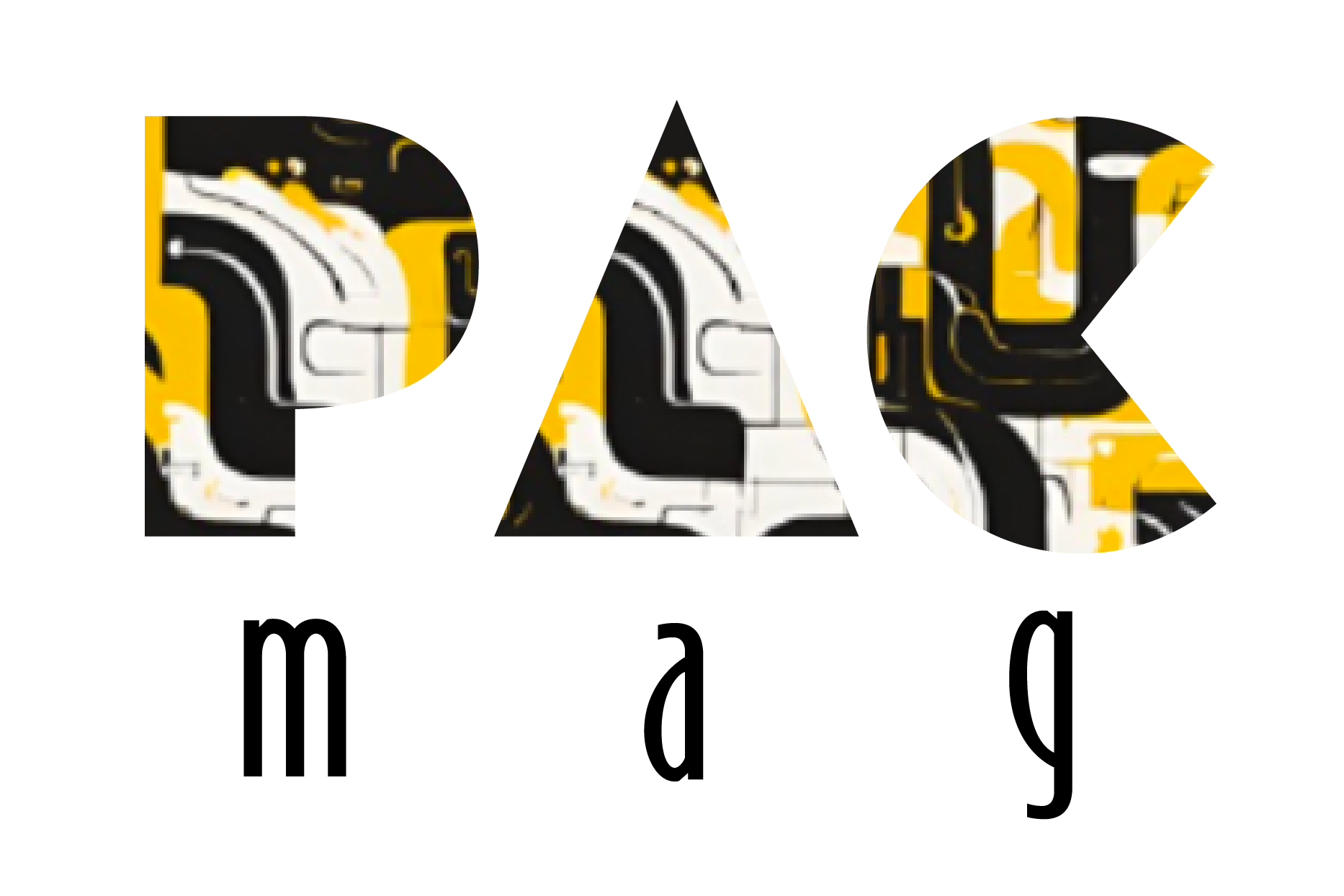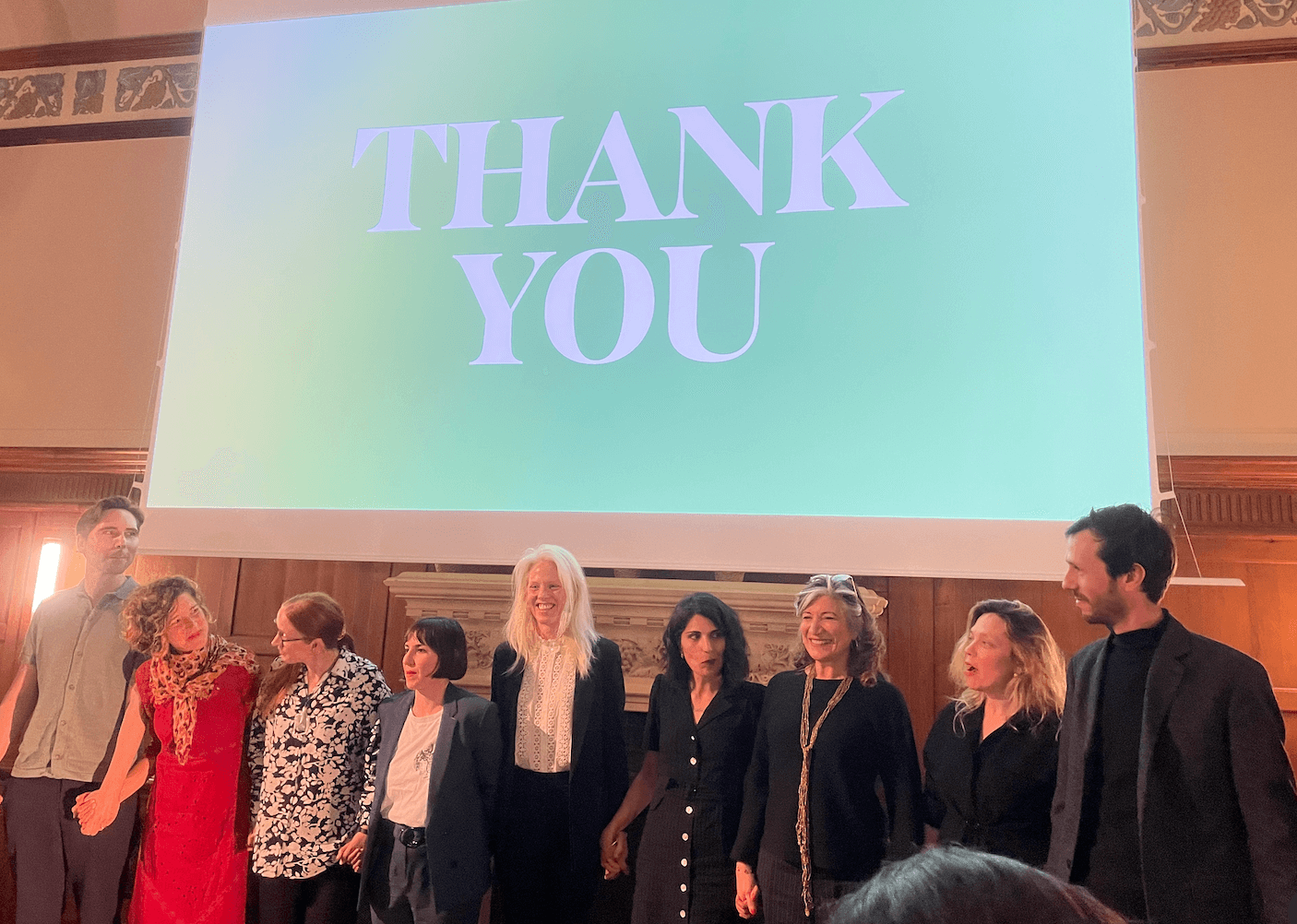Applause moment. April 7, 2025. Image: Jane Matheson
At a recent edition of Live Magazine, a one-night-only journalism show where nothing is recorded, on April 7th 2025, held at Reid Hall at the Columbia University campus in Paris, six women took the stage, one after another, each telling a different story. Some were joyful, some quietly devastating. Together, they formed a patchwork of lived experience that was intimate and political.
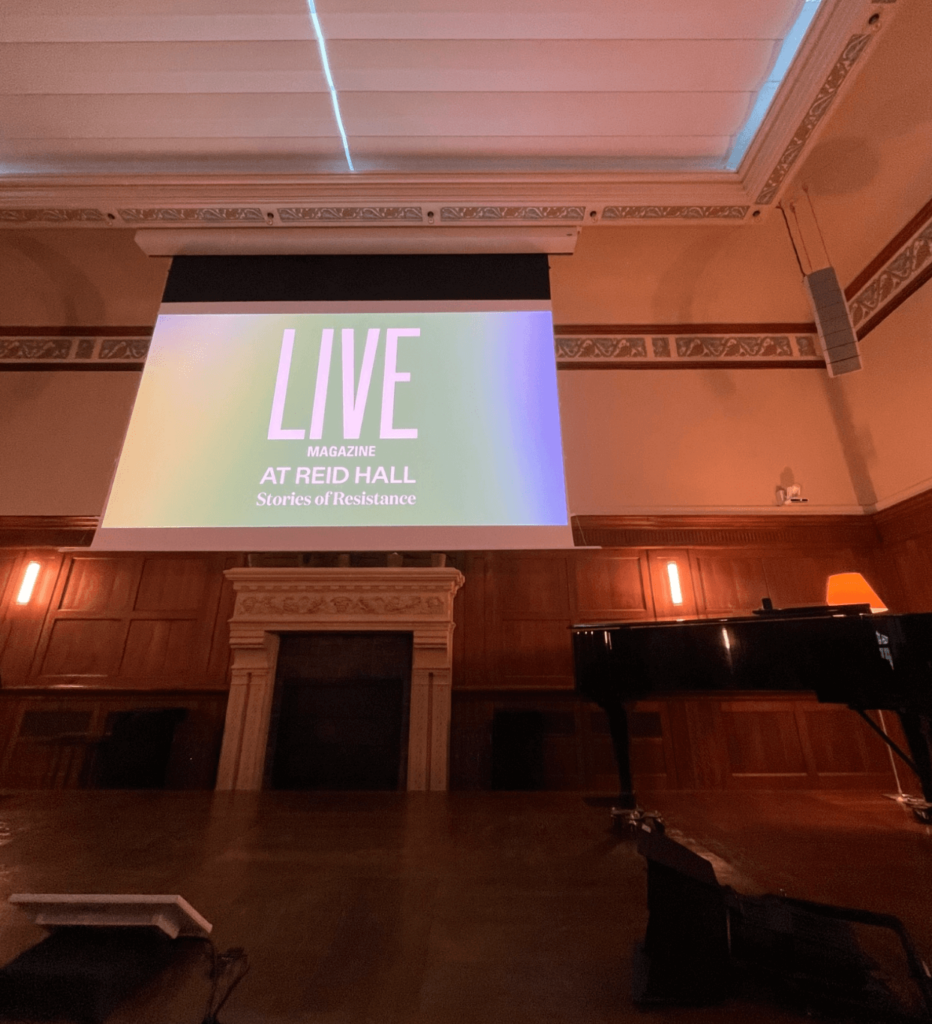
Delphine is a writer and senior reporter for Le Figaro, and a recipient of the Albert Londres Prize for her coverage of the Iraq war. Her books include I’m Writing You from Tehran and The Book Collectors of Daraya, which received the Elle Reader’s Prize.
On this night, Delphine discussed the story of The Book Collectors of Daraya. She talked about how several men from this Syrian village joined the army of rebels to defend their friends and their city, whilst escaping reality in a hidden underground library, where they managed to keep hundreds of books from people around the village. Even on the front lines, they kept reading. There was Shahadi, the citizen journalist who films everything with his camera; Jihad, the problem solver; and little Amjad, the library’s guardian. Amidst the backdrop of bombs, they read poems by the Palestinian poet Mahmoud Darwish, The Little Prince by Saint-Exupéry. They spoke about the friends they lost to the war, their increasingly empty stomachs, and the books they turned to in order to clear their minds. Reading was a refuge.
2- Tetyana Ogarkova
Tetyana is a professor of literature at the Mohyla Academy in Kyiv, Ukraine’s oldest university. Since the annexation of Crimea in 2014, she has focused on resistance efforts at the Ukraine Crisis Media Center, coordinating its press center and issuing over 6,700 communiqués. She also hosts the podcast L’Ukraine face à la guerre.
At Live Magazine, she told the story of a group of Ukrainian writers including her, who travelled to Russian border cities to document the war. One of them, Volodymyr Vakulenko, a children’s author, was kidnapped by the Russian government and later found buried among hundreds of others in an unmarked grave marked only by wood crosses. Before his death, he had written poetry and buried it under a cherry tree in his parent’s house. Victoria Amelina, a poet from the same group found those poems. She was later offered safe passage to Europe, but just days later, a missile hit the restaurant where she was dining. She died in hospital, on the same date Volodymyr had died the year before. As Tetyana read, she dropped each page onto the floor. Victoria had been hit on Tetyana’s birthday.
3- Ariane Lavrilleux
She is a journalist for Disclose and worked on the Egypt Papers, an investigation that led to a judicial inquiry and the indictment of a former military officer. Despite whistleblowing being a right, she was raided, held in police custody for 40 hours, and placed under the status of an assisted witness.
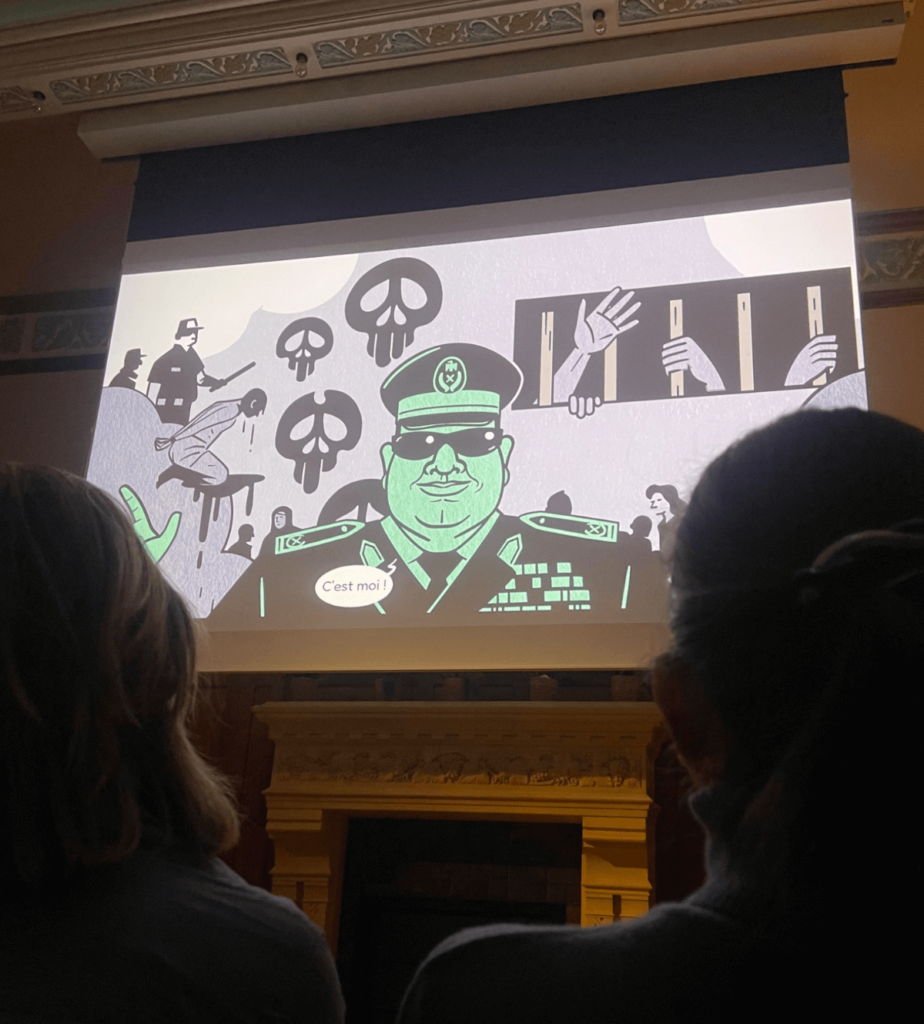
In 2015, France, under President François Hollande and Defense Minister Jean-Yves Le Drian, signed a €5.2 billion arms deal with Egypt, the “deal of the century”, finally selling Rafale fighter jets after 25 years on the market. But alongside the jets, Egypt made a discreet request: military support to monitor its border with Libya, then considered a jihadist stronghold. In February 2016, ten French soldiers were deployed under tourist visas to a base near the Mediterranean. Their mission, however, quickly took a darker turn. Instead of targeting militants, the French surveillance operation was allegedly used by the Egyptian regime to kill unarmed civilians; smugglers transporting goods, not weapons. Years later, one of the ten military personnel involved decided the truth had to come out and secretly handed Ariane confidential documents. She and her team cross-checked every detail to piece the story together. Publishing it triggered a judicial inquiry in France for “disclosure of national defense secrets.” Ariane was held in police custody for 40 hours and had her home raided, simply for doing her job.
4- Sedef Ecer
Sedef Ecer is a writer, director, and playwright whose works have been staged across three continents. At Live Magazine, she shared images from her childhood as a celebrity in 1960s “Istanbullywood”, a golden age of Turkish cinema. With a touch of nostalgia and irony, she reflected on how the country’s political shifts have transformed its film industry. Her latest novel, Trésor National, draws from these memories, weaving Turkey’s turbulent history through the lives of a legendary actress and her daughter — both of whom, like Ecer herself, left Turkey to start anew in France.
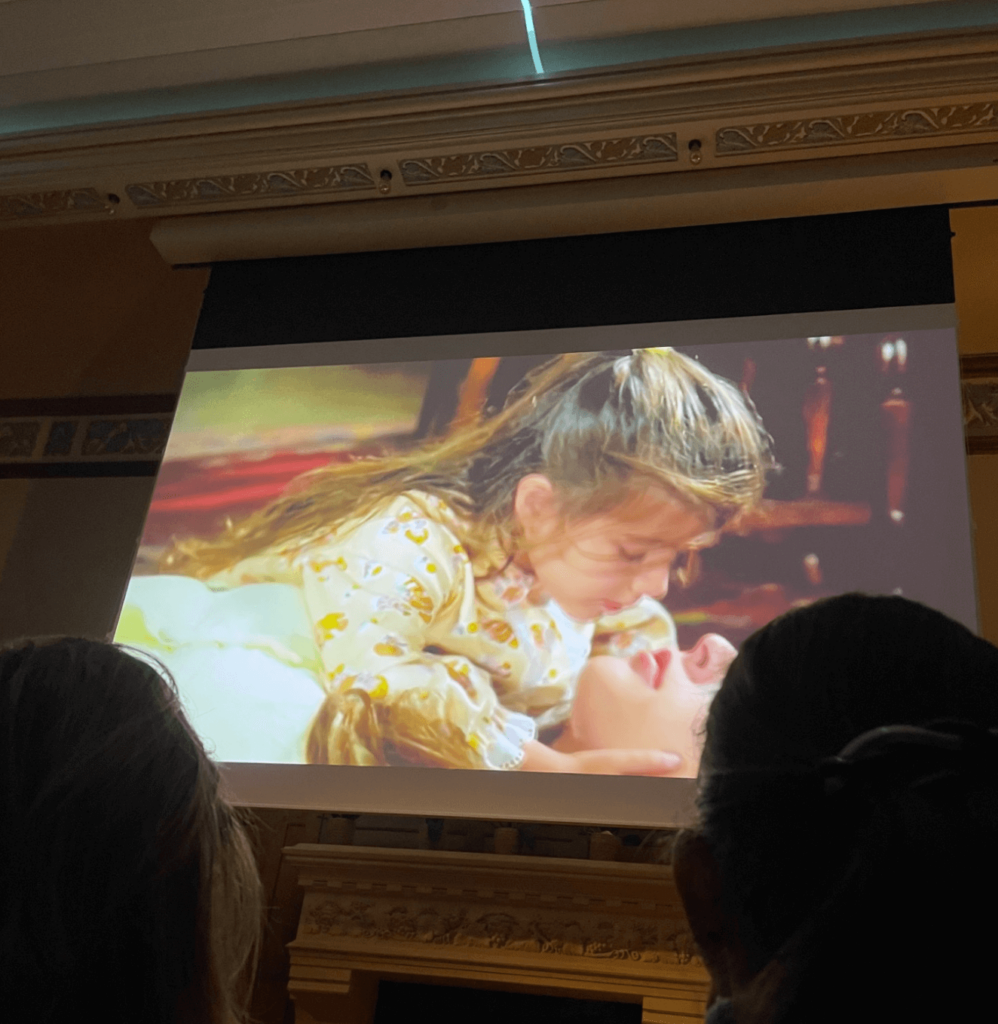
She is a documentary filmmaker and co-founder of the collective Informer n’est pas un délit (“Informing is not a crime”). She shared the heartbreaking story of Vladimir Kara-Murza, Alexei Navalny’s colleague, who has been poisoned multiple times by Putin’s regime and is now imprisoned — not for any violent act, but simply for using the word “war,” a term now banned in Russia. Deschamps recently completed The Poisons of Putin, documenting the Russian government’s use of poison against its enemies.
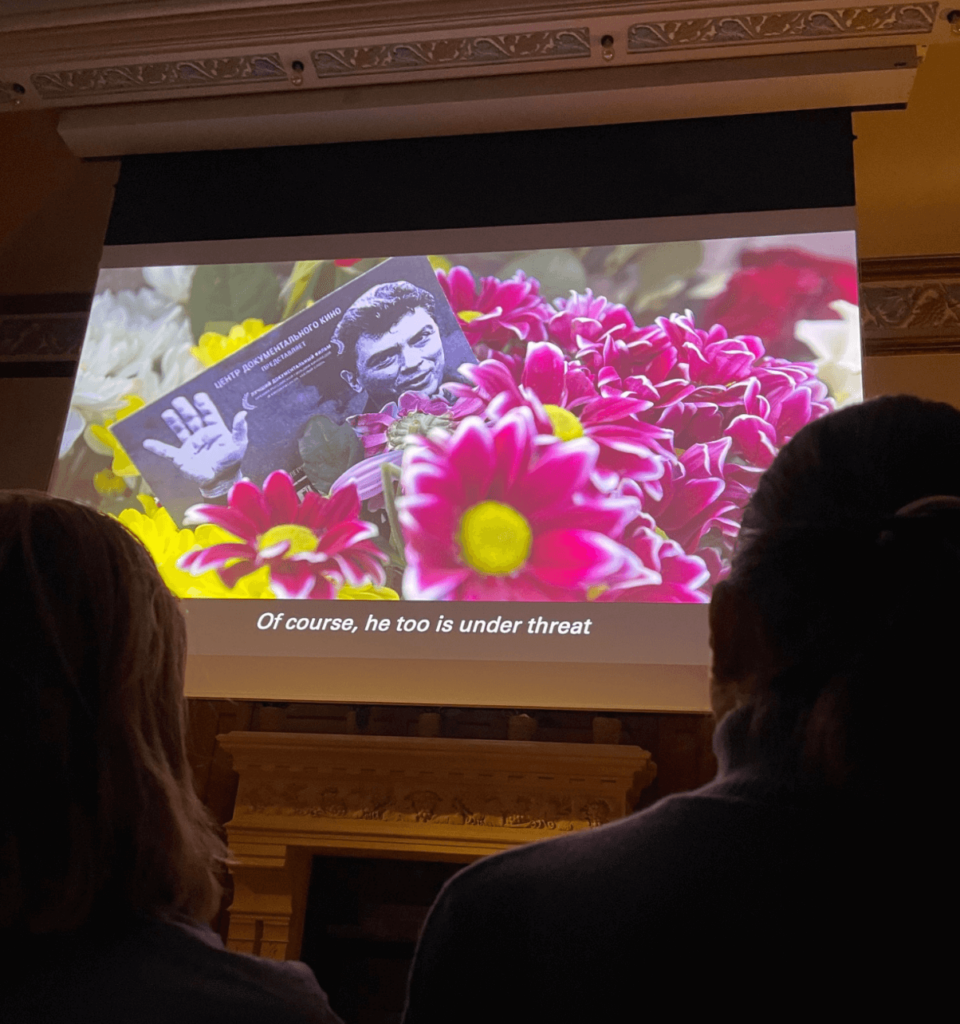
6- Bahareh Akrami
Bahareh Akrami is a communications consultant for the French Development Agency (AFD), where she works during the day, and an illustrator in her spare time. On the night of November 13, she was at the bar Le Carillon when a terrorist opened fire, making her both a chronicler and a civil party in the tragedy that unfolded. Known for saying, “I draw the way I speak,” she uses her art to express deeply personal and social issues. At Live Magazine, she shared the story of Mahsa Amini who was killed in Iran in 2022 for not wearing her headscarf correctly. She also participated in the protest movement, contributing illustrations to Libération. She invited three young girls to dance to Calm Down by Rema and Selena Gomez, a symbolic TikTok dance protest against the Iranian government.
